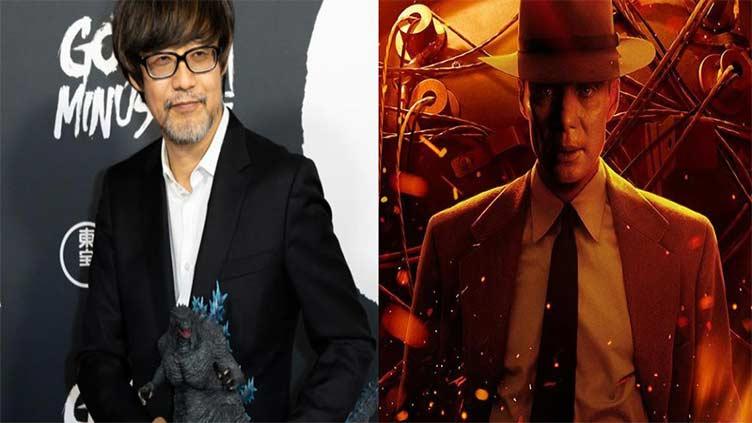Why director of Oppenheimer, Godzilla traveled to Taiwan

Why director of Oppenheimer, Godzilla traveled to Taiwan. Christopher Nolan’s latest film will arrive in Japan on March 29; however, Takashi Yamazaki couldn’t wait.
By Megan Sauer
Godzilla: Minus One is one of the most notable films of the week, all thanks to the impressive effort made by Toho Studios and Robot Communications.
Takashi Yamazaki has been quite active in interviews, making statements that go around the world and make him the center of the spotlight.
Now, in an interview with Movie Maker, the filmmaker confesses that he traveled from Japan to Tokyo just to see Oppenheimer, Christopher Nolan’s new film.
Nolan’s film addresses that time in which Oppenheimer developed the atomic bomb but also blames it by observing the catastrophic consequences of its use.
Robert Oppenheimer experienced great emotional burden and moral conflict over his role in the creation of the atomic bomb.
While he was initially motivated by the belief that the bomb was necessary to end the war, after World War II, Oppenheimer began to feel remorse for his role in creating such devastating technology.
What did the Godzilla director think about Oppenheimer?
The creation of Godzilla in 1954 was a direct response to Japan’s traumatic experiences during World War II, specifically the atomic bombings on Hiroshima and Nagasaki in 1945.
Godzilla, a giant monster created by radiation, symbolizes both the destruction caused by atomic bombs and the nuclear anxiety that persisted during the Cold War.
The story of Godzilla became a unique cultural expression of the scars of war and nuclear fears, highlighting cinema’s ability to address profound social and political issues. Being the director of Minus One, Takashi Yamazaki felt special interest in seeing Nolan’s work.
“In fact, I was so looking forward to seeing Oppenheimer, but it hasn’t been released in theaters in Japan yet. I visited Taiwan to enjoy the movie with subtitles in Chinese. My English, of course, is not that good. I don’t think I fully understood the nuances of what was happening in the movie.
But despite that, I felt that a very powerful force of what the film represented. And of course, being of Japanese descent and heritage, I’ve seen a lot more nuclear weapons in our pop culture or around us since I was very young.
I feel like, as a filmmaker and director, one day I want to give some kind of answer to Oppenheimer.
I don’t think Godzilla is necessarily a direct response to this, although they do point to similar themes. But even if this movie never gets made, I think having it in the corner of my head as a strong thematic element is important.”
The figure of Godzilla has transcended Japanese borders, becoming appreciated throughout the world, and his impact extends beyond entertainment, influencing pop culture and generating reflections on the relationship between humanity and the destructive forces that can arise from technology.
His longevity and adaptability as a character have allowed Godzilla to continue to resonate with audiences across generations, maintaining his status as a cultural phenomenon that transcends time and geography.




